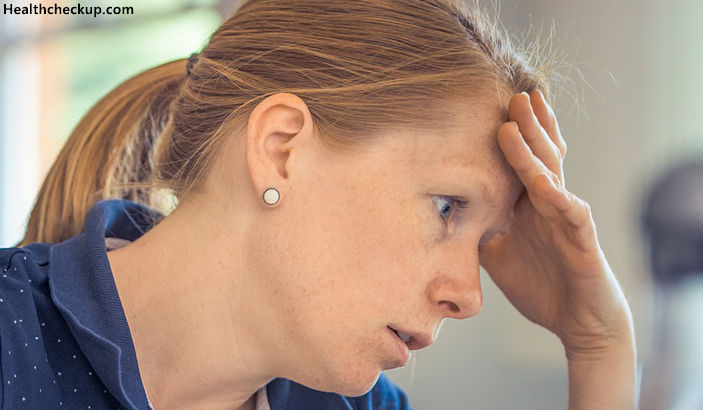Many people, especially women take great pride for having a long, shiny, and gorgeous hair. What if all of sudden your hair starts falling out? I know! It can be frustrating and very depressing indeed. Hair loss, also known as Alopecia, can be as a result of serious underlying medical complications as well as from simple and temporary reasons such as a vitamin deficiency.
It’s often very challenging to determine what is causing the hair loss. Even though it’s common to lose some hair on a daily basis, a sudden hair loss or losing hair more than normal should be addressed with a little bit more concern. In this article, we are going to discuss the various factors and illnesses that causes hair loss and what you can do to fight off hair loss.
Can Illness Cause Hair Loss?
Hair loss is very common in illnesses such as cancer. However, if the underlying condition can/ is treated, the issue of hair loss can be addressed and the hair can start to regrow. But for some other cases where serious chronic illness causes hair loss. Unfortunately, the process cannot be reversed. Below is a list of some of the illnesses that can cause hair loss
- 1. Lupus
According to the Lupus Foundation of America, the Systematic Lupus Erythematosus, which is commonly referred to as Lupus, afflicts more than 1.5 million Americans. Lupus makes the body’s immune system to produce antibodies that attack the healthy cells and tissues in the body including the hair follicles. The antibodies as a result make the hair shafts to be rejected, thereby resulting in hair loss. Lupus is nine times less common in men than in women. - 2. Diabetes

The High blood sugar levels associated with diabetes can result in a wide variety of physical disruptions. For instance, if the high blood sugar levels interact with the red blood cells, it can change their shape. As a result, it can be difficulties for the red blood cells to move through the small blood vessels as well as the capillaries that are responsible for transporting blood to the hair follicles. If the blood flow is disrupted, the hair follicles may die and hair loss can be expected. - 3. Thyroid Disease
Thyroid glands are found in our necks. They are responsible for creating and releasing hormones in the body. In case the thyroid gland is properly functioning, either by releasing too few hormones (hypothyroidism) or too few (hyperthyroidism), it can affect the body’s natural functioning and as a result, cause unwanted conditions. Since hormones are vital in the growth of hair, a disruption can have a direct impact on the growth, retention, and loss of the hair. - 4. HIV
The Human Immunodeficiency Virus is a very strong virus that weakens and attacks the immune system. One symptom of HIV is telogen effluvium- it’s a condition that hinders the growth of new hair strands. It sends the hair follicles in an indefinite resting condition. The existing hair strands normally continue to fall out. However, new hairs are not produced fast enough to replace the falling hair. - 5. Androgenetic Alopecia
Hair loss can be genetic. According to the American Academy of Dermatology, they suggest that genetics are the most common causes of hair loss. This gene can be inherited from either side of the parents. However, you are more likely to experience hair loss if both of your parents had the condition. Androgenetic alopecia affects over 3 million Americans annually and it’s also responsible for more than 95% cases of hair loss in both men and women. - 6. Cancer
Cancer is one of the mostly known illnesses that cause rapid hair loss. Actually, hair loss is one of the symptoms of cancer. Also, the various chemotherapy and radiations used to kill cancer cells can as well as reach to the hair follicles. Usually, if the hair follicles are damaged by these treatments, they take approximately 5-6 weeks resting state and finally they fall out. The hair can grow back though after the treatment ceases.
Most chronic illnesses cause hair loss because they tend to shift the body’s energy and resources from non-vital activities such as growing hair to more important activities such as fighting diseases. Other diseases that cause hair loss include Alopecia Areata, Autoimmune Diseases, Anemia, and many more.
Other Causes of Hair Loss
- Hair Styling Products- Most hair styling products contain toxic chemicals that can damage the hair and cause hair loss. Also, some products such as shampoos have sodium lauryl sulfate which is toxic to the immune system. Studies claim that it corrodes the hair follicles and also hinder hair growth. It’s highly recommended to use natural dyes and shampoos to avoid damaging the hair.
- Birth Control Pills- they contain a certain hormone that suppresses ovulation and as well cause the hair to thin. The hair loss can be experienced during the pill or when you stop taking it.
- Stress- Extreme levels of stress can cause rapid hair loss. The condition can however be reversed if the stress levels are minimized. This can be done by meditating, yoga, exercise, massages, and many more.

- Aging- The rate at which the hair grows tends to slow down as we age. The hair strands tend to get thinner, smaller, finer, and has less pigment. Rapid hair loss can be avoided by eating whole foods since they keep the body youthful.
- Nutritional Deficiencies- Hair loss can be expected in case you are missing some essential nutrients in your diets such as copper, iron, zinc, vitamin D, and proteins.
- Traction Alopecia Causes and Prevention Excessive manipulation of the hair, including hair extensions, braids and wigs can cause Traction alopecia.
Natural Ways To Prevent Hair Loss
Below are some of the ways that you can use to prevent hair loss
- Egg Mask- Eggs are packed with sulphur, selenium, iodine, zinc, phosphorus, and protein which all prevent hair loss and promote hair growth. Also, sulphur aids in the production of collagen and keratin that prevent dandruff.
- Green Tea- Green tea is rich in antioxidants which prevent hair loss and boost hair growth. Studies suggest that green tea is an effective and promising treatment option for hair related problems. Green tea revitalizes the hair follicles and stimulates the production of hair. It also enhances metabolism that leads to increase in the rate of hair growth.

- Licorice roots- It prevents hair loss as well as further damage to the hair. It also soothes the scalp and fight off dandruff/ dry flakes.
- Aloe Vera- It’s one of the most common and effective home remedy for hair. It helps to reduce hair loss, scalp itching and flaking, and also boost the growth of hair. Studies suggest that Aloe Vera increases blood flow and as a result leads to hair benefits such as the healthy scalp, hair growth, and hydration.
- Avocado- Avocados help to nourish, protect, and strengthen the hair.

- Onion Juice- Onions have antibacterial properties that help to fight scalp infections. Also, the sulfur content in the onion improves the circulation of blood in the hair follicles. It relieves the hair follicles and minimizes inflammation. This controls the loss of hair and promotes further hair growth.
- Beetroot Juice- It aims at completing your nutritional deficiency that lead to hair fall.

- Proper Diet and Exercises- Eat a variety of foods that promote hair growth. For instance, ensure that you consume a lot of proteins in your diet. They may include food such as egg whites, milk, fish, and foods high in omega-3 fatty acids.
Regular exercises are also very important, they allow us to sweat thereby cleaning out and unclogging hair pores. Exercises will also make you youthful and healthier. A healthy body also means a healthy hair.
Above are the most common illness that causes hair loss and the respective ways on how to treat and prevent hair loss. In case you are experiencing more or abnormal hair loss, it’s important that you see a doctor so as to understand more about the issue and get the required treatment.
Medically Reviewed By

Catherine is a dedicated freelance health and science writer committed to excellence and professionalism. She specializes in health topics including diet and nutrition, immune-related diseases, surgery, and cancer.















